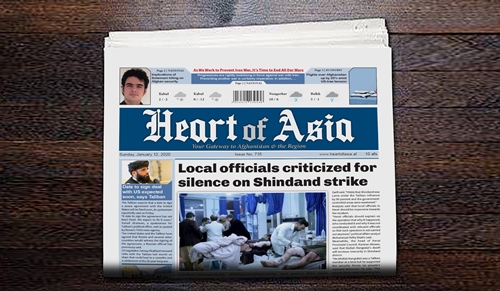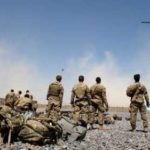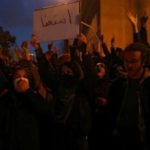Local officials in Herat were criticized for not providing details on a drone strike in Shindand district in the province on January 8 that killed almost 30 civilians and targeted a commander of Taliban’s splinter faction Mullah Nangialai.
Elders in the province and Provincial Council members said Mullah Nangialai had a “close relationship” with the government forces and that he cooperated with the Afghan troops in their fight against the Taliban.
The elders also claimed that Mullah Nangialai had prevented multiple attacks by the Taliban on the center of Shindand – where the international forces are stationed.
According to them, in one instance, Mullah Nangialai even saved the Herat governor Abdul Qayum Rahimi from a Taliban ambush in the province.
“When the (Herat) governor went to Shindand district, he faced an ambush by the Taliban, and he called for help from Mullah Nangialai’s fighters. They came and saved the governor from the Taliban’s ambush,” a tribal elder in Herat Tor Mohammad Zarifi said. “I think that Shindand now came under the
Taliban influence by 90 percent and the government-controlled areas were weakened.”
Analysts said that local officials in Herat should be responsive towards the incident.
“Herat officials should explain on the operation that why it happened, who conducted it and why it was not coordinated with relevant officials so that such operation is not carried out anymore,” political affairs analyst Mohammad Rafiq Shahir said.
Meanwhile, the head of Herat Provincial Council, Kamran Alizaee, said that Mullah Nangialai’s death will increase insecurity in Shindand district.
“He (Mullah Nangialai) was a Taliban member at a time but he supported the security forces on people’s repeated demands,” he said. “The security forces were supporting him (Mullah Nangialai), but regretfully, the incident that has happened has reduced those people’s trust in the government.”
Some local residents and tribal elders claimed that over 50 people have been killed in the drone strike and that most of them are civilians, including women and children.













